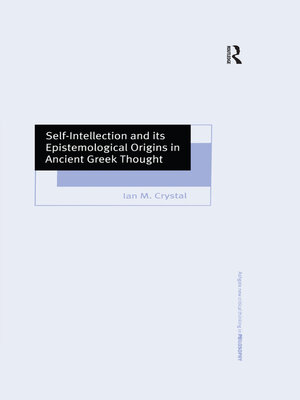Self-Intellection and its Epistemological Origins in Ancient Greek Thought
ebook ∣ Ashgate New Critical Thinking in Philosophy
By Ian M. Crystal

Sign up to save your library
With an OverDrive account, you can save your favorite libraries for at-a-glance information about availability. Find out more about OverDrive accounts.
Find this title in Libby, the library reading app by OverDrive.



Search for a digital library with this title
Title found at these libraries:
| Library Name | Distance |
|---|---|
| Loading... |
Can the intellect or the intellectual faculty be its own object of thought, or can it not think or apprehend itself? This book explores the ancient treatments of the question of self-intellection - an important theme in ancient epistemology and of considerable interest to later philosophical thought. The manner in which the ancients dealt with the intellect apprehending itself, took them into both the metaphysical and epistemological domains with reflections on questions of thinking, identity and causality. Ian Crystal traces the origins from which the concept of self-intellection springs, by examining Plato's account of the epistemic subject and the emergence of self-intellection through the Aristotelian account, before the final part of the book explores the problem of how the intellect apprehends itself, and its resolution including Plotinus' reformulation and the dilemma raised by Sextus Empiricus. Crystal concludes that Plotinus recasts the metaphysical structures of Plato and Aristotle in such a way that he casts the concept of self-intellection in an entirely new light and offers a solution to the problem.







